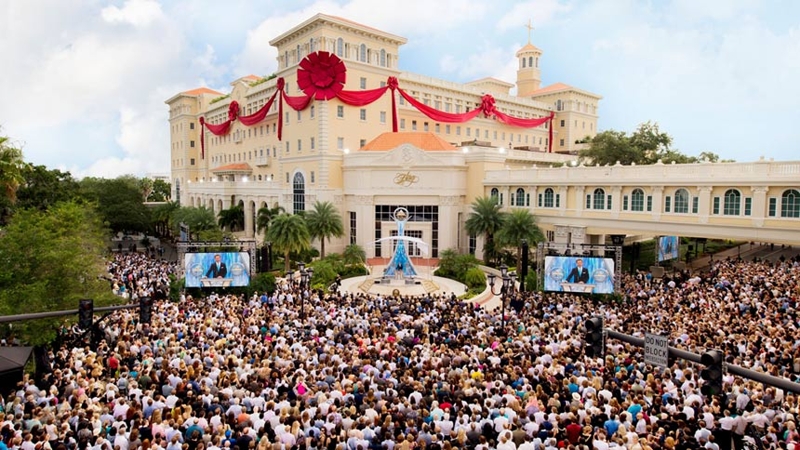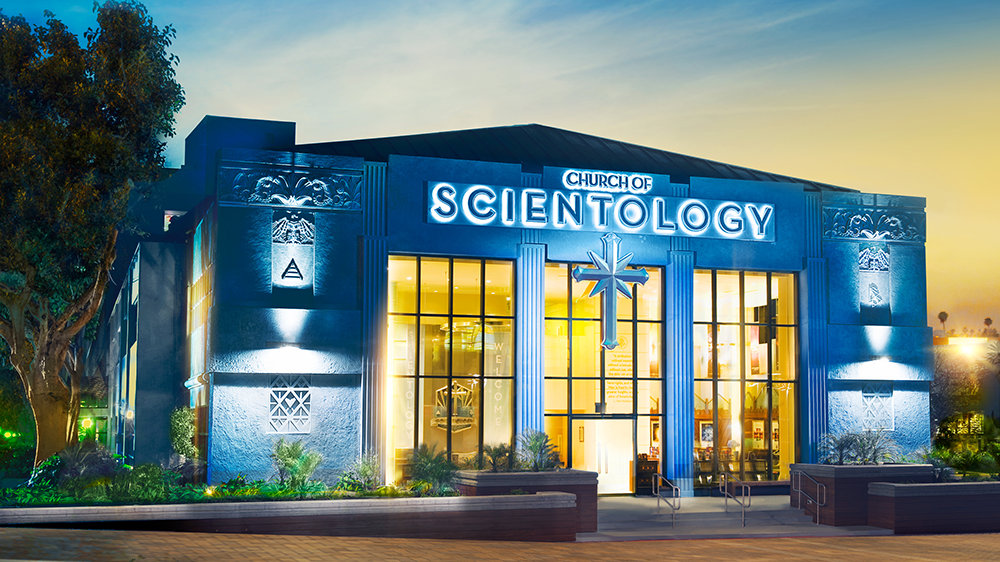Unlocking the Mysteries of Scientology: Resources, Services, and Initiatives
Unlocking the Mysteries of Scientology: Resources, Services, and Initiatives
Blog Article
The Fact Concerning the Church of Scientology Revealed
The Church of Scientology has long been a topic of both fascination and debate, with its beginnings dating back to the mid-20th century. As we start to untangle the truth concerning the Church of Scientology, a clearer photo emerges, disclosing a story that is as intriguing as it is contentious.
Beginnings and Starting
The Church of Scientology was founded in 1954 by scientific research fiction author L. Ron Hubbard. Hubbard originally developed a self-help system called Dianetics, which later advanced right into what is now referred to as Scientology. The beginnings of Scientology trace back to Hubbard's dissatisfaction with conventional psychiatric therapy approaches and his belief in the potential for people to overcome past traumas and accomplish spiritual enlightenment.
Hubbard's teachings centered around the concept of thetans, immortal spiritual beings provide in all individuals, and the practice of auditing, a type of counseling intended at revealing and dealing with previous injuries (Scientology Randburg). These principles developed the structure of Scientology, which Hubbard explained as a religious beliefs that offered a path to self-discovery and personal growth
The Church of Scientology quickly gained fans, with Hubbard developing the initial main Church of Scientology in Los Angeles. For many years, the company increased globally, attracting both devoted followers and doubters that elevated worries regarding its techniques and ideas. In spite of debates surrounding its techniques and beginnings, Scientology remains to be a substantial spiritual motion with a presence in various countries around the globe.

Beliefs and Practices
With an emphasis on spiritual knowledge and personal growth, Scientology's beliefs and techniques focus on discovering past traumas and achieving self-discovery with the principle of thetans and the method of auditing. Thetans, according to Scientology teaching, are never-ceasing souls that exist within each person. These thetans have actually lived with various previous lives and have actually collected unfavorable experiences called engrams that hinder spiritual progression. Via a process called bookkeeping, Scientologists goal to address and remove these engrams to attain a state of clear, devoid of the adverse results of previous injury.
Auditing entails an one-on-one session in between a qualified auditor and a Scientologist. Throughout these sessions, the auditor guides the person through a collection of questions and workouts developed to help them face and resolve their past injuries. By doing so, Scientologists believe they can accomplish spiritual enlightenment, improve individual growth, and reach their full possibility as spiritual beings. The method of auditing is central to the ideas and practices of Scientology, highlighting self-discovery and the search of a higher state of existence.
Debates and Objections
In the middle of public examination and discussion, the Church of Scientology has dealt with a plethora of objections and disputes concerning its practices and impact on culture. One considerable point of opinion focuses on the organization's claimed economic techniques, with accusations of excessively high costs for solutions and hostile fundraising tactics - What is Scientology. Movie critics have likewise raised issues about the Church's strict hierarchical structure, which some former participants declare promotes a society of control and control
Additionally, the Church of Scientology has actually gone through extensive objection for its therapy of participants, consisting of accusations of required weblink labor, psychological abuse, and the technique of disconnection, where members are encouraged to cut connections with household and pals important of the Church. These techniques have actually caused different legal challenges and examinations in several nations, casting a darkness over the Church's credibility.
In Addition, the Church's hostile legal tactics versus media and movie critics outlets have actually stimulated debates concerning free speech and the limitations of religious protection. These conflicts have substantially shaped public assumption of the Church of Scientology and remain to sustain ongoing discussions regarding its authenticity and effect on society.
Management and Structure
How does the management structure of the Church of Scientology affect its operations and decision-making procedures? The Church of Scientology is known for its ordered management version, which is centralized around the authority of its leader, currently David Miscavige. As the Chairman of the Board of the Religious Innovation Center, Miscavige holds substantial power within the organization. This centralized leadership structure permits quick decision-making and regular enforcement of policies across the church's numerous branches worldwide.
At the local level, Scientology operates via specific churches and objectives, each with its very own collection of leaders responsible for managing operations within their respective locations. These leaders are entrusted with applying the directives stated by the main leadership while likewise addressing the particular demands of their congregations.
While this hierarchical framework can ensure and improve procedures adherence to the church's teachings, it has additionally faced criticism for potential abuses of power and lack of transparency. Comprehending the leadership and structure of the Church of Scientology is vital in understanding just how the company features and the characteristics at play within its rankings.
Influence and Effect
What significant impacts does the management framework of the Church of Scientology carry its members and outside stakeholders? The ordered leadership structure within the Church of Scientology puts in a profound impact on its participants and external stakeholders. Members are commonly based on strict control and tracking, with substantial stress to comply with the beliefs and methods dictated by the leadership. This can cause a loss of individual autonomy and crucial thinking skills, as people are anticipated to unquestioningly comply with the regulations stated by Look At This the organization's leaders (Scientology).
On The Surface, the Church of Scientology's leadership structure can have a polarizing effect on stakeholders. While some may be attracted to the organization's charming leaders and promises of self-improvement, others might be wary of the control applied over participants and the controversies surrounding the church. This can result in a division in public perception, with some watching the organization positively and others sharing suspicion or criticism. In general, the management structure of the Church of Scientology plays a substantial function in shaping the experiences and understandings of both members and outside stakeholders.
Final Thought

The Church of Scientology promptly acquired followers, with Hubbard developing the first official Church of Scientology in Los Angeles.In the middle of public analysis and argument, the Church of Scientology has actually visit site faced a multitude of conflicts and criticisms regarding its practices and impact on society.What considerable impacts does the leadership structure of the Church of Scientology have on its members and external stakeholders? The hierarchical leadership framework within the Church of Scientology applies an extensive influence on its members and outside stakeholders. Generally, the leadership framework of the Church of Scientology plays a substantial function in shaping the experiences and understandings of both members and exterior stakeholders.
Report this page